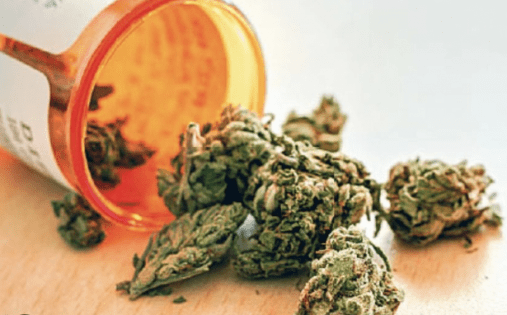

With the impending arrival of medical marijuana dispensaries and other related facilities on their way to Mississippi, the Lamar County School District Board of Trustees has voted to adopt a policy prohibiting those businesses on school-owned 16th Section land.
The decision was made during a recent school board meeting, where district superintendent Steven Hampton said he and the board did not want any of that land to be rented out for anything related to medical cannabis. The Mississippi Secretary of State’s Office serves as supervisory trustee for 16th-section public school trust land and works cooperatively with the Mississippi Forestry Commission to manage the lands, which are placed in trust for the support of public education.
“We do have 16th Section land, and we lease out 16th Section, and we didn’t want any of the school land to be leased out to …. sales, cultivation, distribution, growing,” Hampton said. “We have agricultural leases too, and that’s just not something the school district needs to be involved in.
“There’s many reasons why we felt like (we don’t want it in the district); ultimately, it’s still a Schedule I drug from the federal level, and we receive federal funds, so we don’t want to run the risk of having any loss of federal funds. It’s something that we feel like, from a school district standpoint, that we don’t want to be involved in.”
In addition, medical cannabis products of any types will not be allowed on any campus of the Lamar County School District.
“We already have student policy and employee policy that the use and possession of medical cannabis is prohibited,” Hampton said.
Mississippi voters overwhelmingly approved the use of medical marijuana during the November 2020 general election, but that effort was soon nullified by the Mississippi Supreme Court. However, the cannabis act was recently approved by both chambers of the Mississippi Legislature – the House and the Senate – and was signed into law shortly thereafter by Gov. Tate Reeves.
Back in August, Hattiesburg City Council members approved three measures – one zoning change and two conditional use requests – that will allow those businesses to comply with recently-adopted laws regarding the subject.
In early May, council members began to ensure that proper zoning laws would be in place well before the medical cannabis business set up shop in the city. They delineated six kinds of businesses that would be allowed to operate.
Those types of businesses are as follows:
- Cultivation: Indoor growing only. Conditional use would be allowed in agricultural zones because cultivation is required to be inside of a building. Conditional use would be based on odor prevention and disallowing cannabis product or waste to be stored inside of the building.
- Processor: Processes and extracts from raw materials. Permitted with conditions in industrial zones or A-! general agricultural zones. Agricultural zones are only permitted if combined with cultivating, and an odor prevention plan must be put in place to mitigate odor from leaving the building.
- Lab: Research, development and testing. Permitted with conditions in industrial zones, A-1 general agricultural zones and B-5 regional business zones. Conditions are as above.
- Dispensary: Retail sales. Permitted in B-3 community business, B-4 downtown business and B-5 regional business zones. Locations adjacent to residentially-zoned properties require permission of the Hattiesburg Planning Commission.
- Transporter: Transports cannabis products. Permitted with conditions in all industial zones. Conditions are as above.
- Disposal: Disposes of cannabis products. Cannabis-related transportation will not be regulated any differently than any other transportation business by the city.

